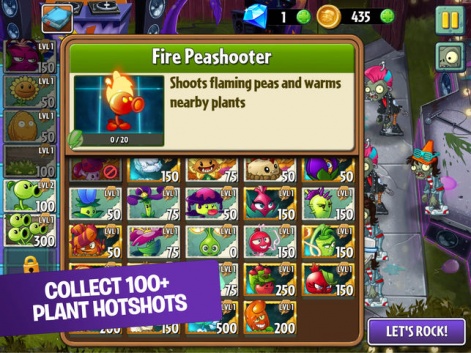The games industry plays host to an excellent cast of colourful and diverse individuals, from artists and coders to narrative designers and studio heads.
The skills to pull off these roles, however, are complex and differing. With each position requiring mastery in its field.
As such, seeing a game come together is a beautiful thing akin to a puzzle as an overall picture becomes whole. Of course, seeing that puzzle come together also takes a steady and guiding hand from senior members of companies.
To highlight some of the brilliant work that goes on behind the screen, and help others who may be keen to dive in, PocketGamer.biz has decided to reach out to the individuals who make up the games industry with our Jobs in Games series.
This time we speak to Future Games of London creative director Elizabeth Sampat.
PocketGamer.Biz: Can you tell us about your current role and what it entails?
Elizabeth Sampat: I'm the studio creative director at Future Games of London, a Ubisoft mobile games studio. I manage the game design department, as well as live ops, business intelligence and our UX designer.
I'm also the ultimate creative vision holder for our games and it's my job to ensure the teams who work on our projects are remaining true to our original creative goals.
Finally, I lead our prototype and incubation process: where anyone at the studio can pitch. I then work with the managing director to help decide what pitches to send into prototyping and which prototypes to incubate.
How did you first get into games and how did you progress into the role?
I got started designing and self-publishing tabletop games in my spare time between 15 other side gigs, while trying to keep my family fed.
I knew I wanted to get into digital games, so I found a small web game company whose work I admired and basically kept pestering them until they put me to work for free (this is not advice: don't pester people or work for free).
Learning to code is always good because it lets you make your own games and honestly that matters so much more than any specific degree.Elizabeth Sampat
Eventually, they gave me some paid work; this helped me get my foot in the door at a company making Facebook games, and the rest is history.
Is it something you ever imagined yourself doing?
Absolutely not. I hung out with a lot of tabletop game designers and play-tested their games, and whenever they said "why don't you make a game?", I demurred.
I don't know if I was afraid of the math or just generally afraid of failing but the second I saw people playing and loving my first game, I knew this was it for me.
What did you study (if anything) to get your role? What courses would you advise for aspiring professionals in this area?
I went to college right before the boom in game-related degrees started; I also went to college in the middle of nowhere in Montana.
Most of my friends got their degree in horsemanship. I dropped out with half an English degree and a minor in Philosophy and Religious Thought. Learning to code is always good because it lets you make your own games and honestly that matters so much more than any specific degree.

Brenda Romero put it best: if you're the kind of person where going to school is just going to take time away from making games, just make games.
But if you, like many people, benefit from working with peers in a structured environment and learning in a regimented way, there are a lot of good programs that can give you that.
What part of your role do you find most fulfilling?
This is a pretty equal tie for me. Making something out of nothing is incredible. There's nothing like seeing a game from concept through launch but I also genuinely love mentoring other designers, seeing them grow and watching them make something out of nothing too.
If you don't absolutely love making games, there are easier lives to choose.Elizabeth Sampat
Do you think there are any misconceptions, public or professional, surrounding your area of expertise?
They all revolve around the role of the ‘Idea Guy’. Some people want to be the guy who just comes up with ideas. A lot of people will tell students: "The idea guy doesn't exist!" That's not entirely accurate.
I'm a professional ‘Idea Guy’. It's not as glamorous as it sounds. The ideas always live within existing constraints and you have to sell everyone on the ideas, and you have to have the design expertise and the experience working collaboratively with other disciplines to know whether your design is feasible in the first place.
Being the ‘Idea Guy’ means having a lot of meetings and then having meetings about those meetings.
Is there anything about the job/industry you wish you would have known when first joining?
I came into the game industry thinking, "ah, stability at last". Look at the news on any given week and there are at least two stories about massive layoffs happening.
Ubisoft deeply believes in investing in their employees, so I feel really grateful to have found a Ubisoft studio I love.
But I've been in the industry for almost eight years and I've moved six times - with two international moves. My kids are still mad that I made them spend a year learning Danish in Copenhagen and then we moved to the UK.
If you don't absolutely love making games, there are easier lives to choose.
What other advice do you have for someone looking for a job in this profession?
Make games. Even if you can't do everything you need to do - find other people and make games with them. I couldn't code, so I made tabletop games.
If you're an artist, put your assets into an engine either through mods or working with a team. The easier you make it for employers to see that you understand your role in the game-making process, the more they'll want to hire you.





















